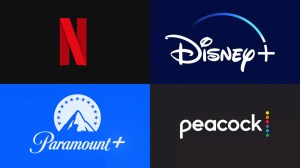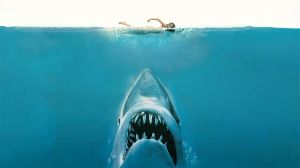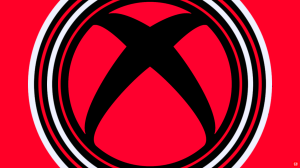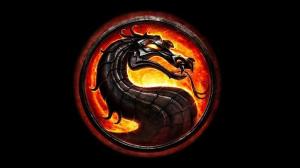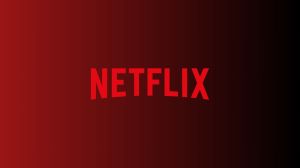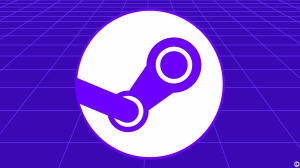Recently, Steve Lacey and Andrew Leyland began releasing “remastered” editions of the early episodes of their popular Fantastic Four podcast The Fantasticast.
Videos by ComicBook.com

The show, which launched in 2012, has grown a lot in its over 200 episodes, and the result is that, like many long-running podcasts, the early episodes don’t feel at home in context of the later ones.
The episodes, though, remain as popular as the new material, since the high concept of the show is offering a running commentary on the publishing history of the Fantastic Four; it’s hardly breaking news, and it’s hard to argue that you wouldn’t benefit from the context of the early episodes to service the analysis that comes later.
Lacey joined ComicBook.com to talk about the show, why they’ve chosen to remaster it now, and what it is they’re doing.
What was the impetus to revisit your old episodes and why now?
Early episodes are always tricky for a podcast, especially for a show whose content doesn’t age (as opposed to, say, a podcast covering current comics news and releases). Our first episode is our most popular by far, and yet is probably the episode that least represents the show. When Fantastic Four (2015) was released, I added an introduction to the episode, apologising for the audio quality and letting listeners know what the show had become, and since then, I’d been toying with the idea of revisiting the older episodes. For the first couple of years of the show, we used a Skype call recorded to record our Skype call, with all the issues that come with that (reduced audio quality, Skype latency, etc.), and I wasn’t very confident with how to work with the audio to get the best possible sound. So, I wanted to go back and do the best I could with the audio quality, as well as tightening up the editing to create an episode that is a little more in line with our current content.
As for why now? Recently, someone sent us a note on twitter referring to a jokey introduction I’d created for an older episode. When I went to find out what they were referring to, I found myself listening to audio that I had no recollection of creating. This was quite a surprise, and the jump in audio quality from the introduction I’d created by myself to the audio from the recording sessions was quite stark, and made me think that I could do something about that.
What would you say is the biggest change to the show since it started?
Confidence. Confidence in our relationship, confidence in what we bring to the show, confidence in the format of the show, and confidence that what we put out is of quality – both content and audio. As an example, we heavily scripted our first few episodes, to the point of writing down each piece of commentary and working through the issue with this script. As time went on, we grew more confident with our ability to discuss and debate the issue, and slowly dropped the scripting element. Now, only our synopsis and the notes for world history and Marvel comics history are fully scripted – the rest is a lot looser, and a lot more enjoyable.
What would you say to a new listener to preface your first episode?
I say, “stick with it.” Our first episode is our roughest episode in a number of ways. We get better with the audio quality, we develop into a stronger format for the show. I’m really proud of the show we have now, but I’m aware that the road can be a bit bumpy along the way.
Do you feel that going through Marvel’s output sequentially from the beginning of the company as we know today has given you any significant insights into the development of the FF series, medium, or today’s comic landscape?
We’ve been recording the show since October 2011. Back then, we were anticipating the return of the Fantastic Four’s primary comic book with Fantastic Four #600, and were well-over a year away from the end of the Hickman run on the title. A new film was rumoured, but no director or cast had been hired. The New 52 was a few months old, and Marvel were just starting to reclaim the sales charts from DC. Both of us feel that things have changed a lot since then, and not just because of the lack of a Fantastic Four title. We’re both down to historically-low numbers of Marvel books in our pull lists, and feel that Marvel has really lost its way. That’s not to say that there aren’t good books being published, but it’s hard to get behind these books at the moment with yet another ‘Everything changes, honest guv’ crossover on the horizon.
Having said this, our podcast starts at the beginning of the Marvel Age of Comics. Depending on how you look at it, you could argue that we actually start just before it begins! Watching Marvel grow from a bandwagon-jumping production house of anything that might sell and become the pop culture icon that we know today was fascinating. I’d highlight the Marvel pre-1967, where their distribution deal limited them to a set number of titles each month, as a particularly interesting period. Between the creators working out how to work in the Marvel method and to tell compelling superhero concepts, all the while knowing that if a property fails, that’s one eighth of their publishing for the month that’s failed, is fascinating.
Is there anything from your early episodes you would like to reintegrate into the Fantasticast today?
I don’t think we abandoned any features or elements of the show as we went, but we’ve certainly added to them. I chuckled when I heard myself from 2011 state categorically that we wouldn’t be doing roundups of world history, or Marvel comics published during the same month, as we now provide quite a bit of detail of those.
What are some of your fondest memories of recording the Fantasticast’s earliest episodes?
I had a lot of nervousness, coupled with a lot of excitement. Andy and I had only spoken once before, when I pitched the show to him. I had a good idea of what I thought the show should be, but didn’t want to let that run roughshod over our discussions. Thankfully, within a few minutes, I found a way of making him laugh (and his wife, who was in the background hearing what was going on), and that moment broke through a lot of my nerves and let me relax into the show more.
There was a definite thrill with having our first few guests on. That’s not to say that I don’t get a thrill now – every new voice on the show is exciting and enhances the podcast. But with the first few podcasters to join us – Josh Bertone, Donovan Morgan Grant, J. David Weter, and Jon M. Wilson – it felt like we were legitimising ourselves. Josh and Don were friends from Amazing Spider-Man Classics, a podcast I’d guested on before. Jon had been on that show, and had given me my podcasting break on the now-defunct Teenage Wasteland: An Ultimate Spider-Man Podcast.
It felt great to be able to repay the favour and bring these voices of authority onto the show. J. David was producing great shows on both Superman and the Hulk that I listened to and loved, and he was the first person from outside of my circle of friends to come and be a part of the show. The biggest moment for me was when we had Michael Bailey join us. Michael is one of the hosts of From Crisis To Crisis: A Superman Podcast, and that was the first podcast I ever listened to. Having him be a part of the show really made me feel like we’d ‘made it’ as a podcast, and I can’t wait to welcome him back later in the year.


